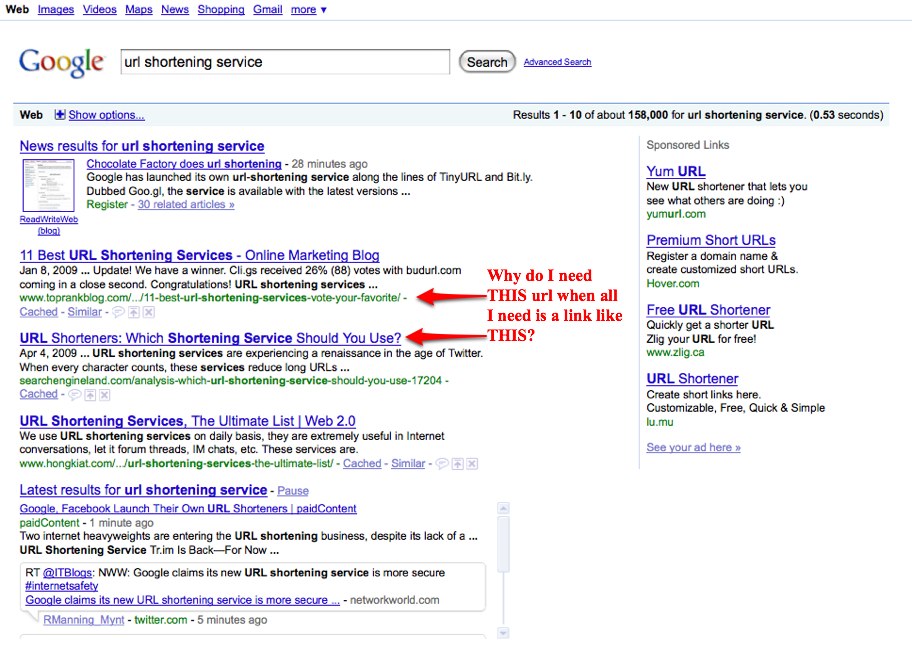Google, Facebook in URL shortening: pioneers should keep innovating

A URL used to say something about a Web site's owner - a memorable name that replaced a complex set of numbers that were used to access a Web page. Then things changed. In today's world of Twitter tweets and mobile texts, where long drawn-out URL links are character hogs, services like tinyurl and bit.ly came on board and showed us that there was value in shortcut URLs with only a few characters.
These services should be thanked for introducing us to URL shortening and providing a service for us early adopters. We appreciated it. But the time has come for the big guys to step in and take over the URL shortening game, or so it would appear.
Today, Google announced goo.gl, a URL shortening service that's being introduced as part of the browser toolbar and the Feedburner RSS service but will likely end up being a more broadly integrated feature. (Techmeme) Meanwhile, there was also some blogger buzz today about fb.me, a URL shortening service that Facebook is reportedly testing.

URLs are just what's used today. We're already transitioning to a society of bookmarks, desktop shortcuts, and links. Why do we even need URLs? Maybe we can speak the command to bring up a web site. Or just touch an app-like shortcut. At some point, won't the computer just be able to read my mind?
The pioneers should keep innovating, pushing the boundaries and giving us what we don't even know we need yet. But be realistic about the future of URL shortening - Google and Facebook are the new drivers of the technology. They'll tweak it and shape it and deliver it to the masses. It's up to the innovators to discover the next big thing.